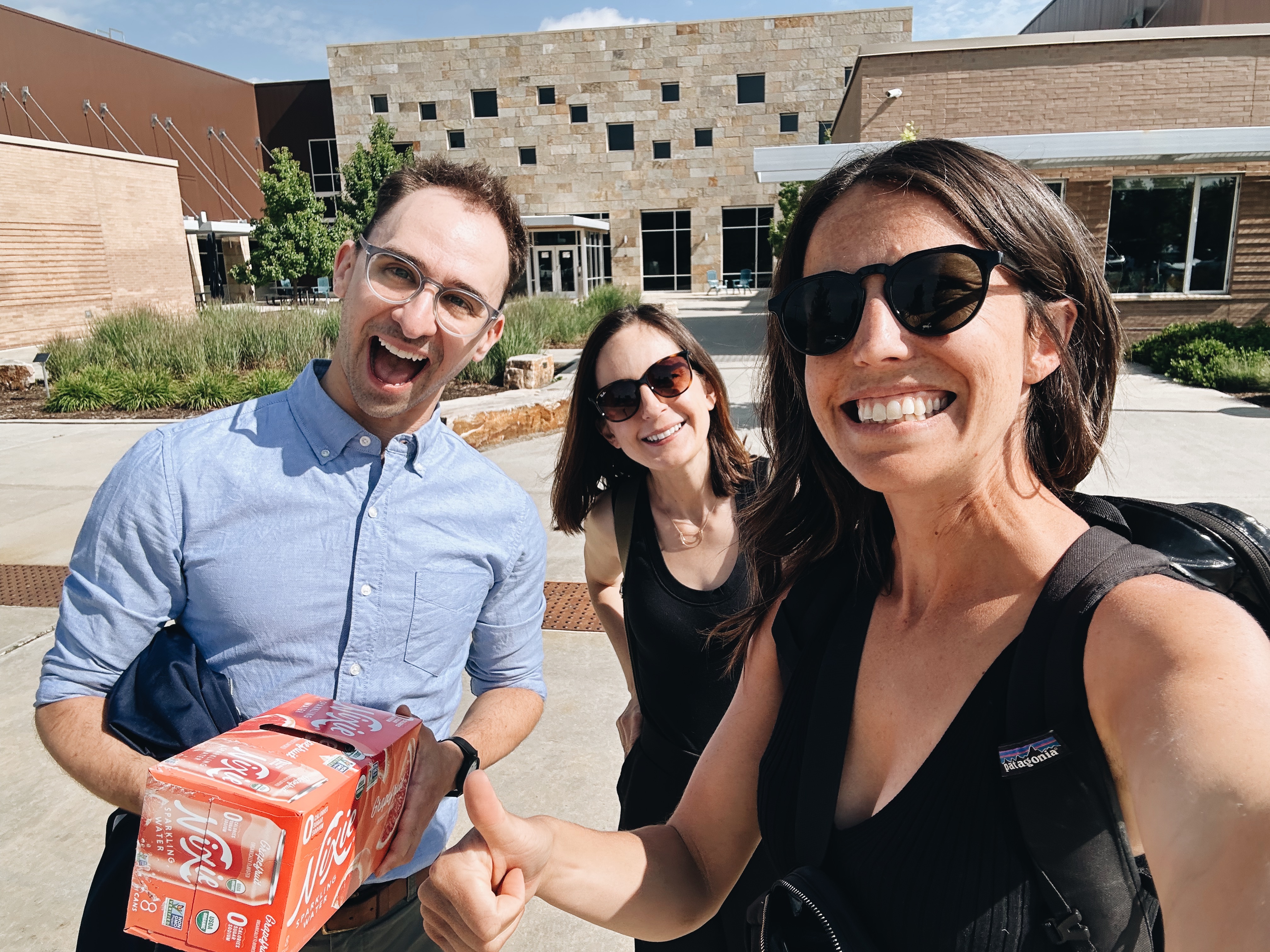We recently participated in a Fundamentals of Scrum workshop led by Tamara, an instructor who teaches Certified Scrum Master courses to folks who want to be certified. It was 4 hours, fast-paced, and mandatory for ALL staff (even non-project team members).
And even though OpenTent already uses the Scrum framework for project management, it was incredibly insightful and illuminating. Not only as a reminder of the basic fundamentals or a time to re-assess which aspects of the framework need adjusted in our current working model, but because our staff, ALL of us, had to quickly assemble into self-organized teams. In particular, teams that had not previously worked together on OpenTent projects.
Not all teams are created equal. It is especially important to note that when people are placed into a team by someone else, it can take time to build the trust, communication, and flow necessary to be successful. And that's why it is even more significant that during the workshop each team communicated, iterated, and produced an end product within 45 minutes. Together. Successfully!
How did this happen? It comes down to the elements that make up a self-organizing team and the traits and values held by the amazing humans that work for OpenTent.
A self-organizing team is one in which a group of people find their own work and manage the associated responsibilities and timelines. They take on the responsibility of choosing the most effective and efficient way to complete their work and regularly look for ways to improve through experimentation. Each member within the team has a strong sense of ownership and commitment towards their work and a trust in the skills of their co-workers to believe that everyone can get the work done. And maybe most importantly, they communicate effectively and work with each other through every step of the process.
And during our workshop, because of each teammate's sense of ownership and commitment to kind communication, these newly formed teams found an easy experience in completing the workshop assignment. They knew how to designate appropriate roles (even if they had never taken on the role before!), interact within those roles, and perform regular visual check-ins to ensure the whole team was on the same page (we use a system called 'fist to five' where you hold up the number of fingers that correlate with your comfort level with a decision, fist being 0 aka NOT comfortable, 5 being ALL in, and 3 being unsure but overall ok with moving forward).
We also found areas that we want to explore further and figure out how to incorporate more explicitly into the Scrum framework we are already using. For example, the way prioritization and incremental value are outlined in the Scrum guide and the way OpenTent defines them during project work are different. We found it super helpful to learn more about the framework as a blueprint for HOW to work, but also allow for tweaks along the way to ensure we are meeting our specific company's goals and objectives. For OpenTent project work, we've had to adapt the framework to our business model, one that the Scrum Framework wasn't initially intended for.
But seeing this play out in the workshop setting actually gave our team members MORE assurance and encouragement about our approach to project work. Although we sometimes wish we could turn to the scrum guide to just figure it all out for us, there is often no easy answer because the problems we are solving for our clients are really hard problems to solve.
We are committed to continuously re-evaluating what process will work best, even getting back to the basics, to ensure we are doing everything we can to efficiently create the solutions for our clients so that they can make the biggest impact possible. And finding new ways to practice team self-organization doesn't hurt either!
To learn more about OpenTent's way of Working Out Loud, get in touch here!












